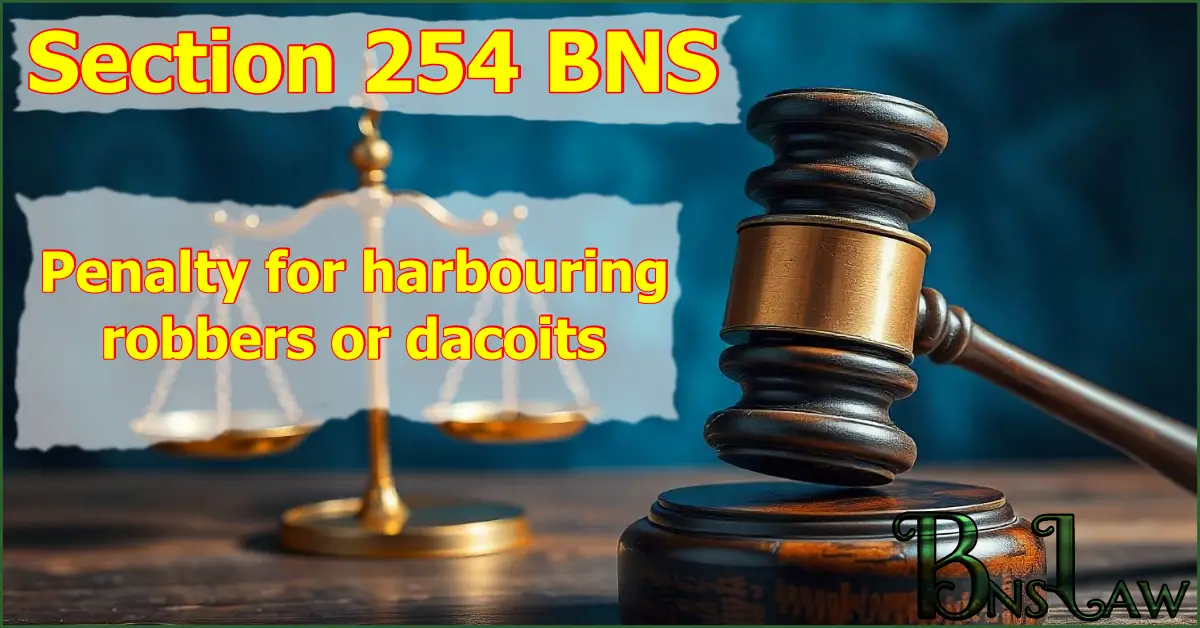Section 254 BNS | BNS 254
Whoever, knowing or having reason to believe that any persons are about to commit or have recently committed robbery or dacoity, harbours them or any of them, with the intention of facilitating the commission of such robbery or dacoity, or of screening them or any of them from punishment, shall be punished with rigorous imprisonment for a term which may extend to seven years, and shall also be liable to fine.
Explanation— For the purposes of this section it is immaterial whether the robbery or dacoity is intended to be committed, or has been committed, within or without India.
Exception— The provisions of this section do not extend to the case in which the harbour is by the spouse of the offender.
READ OTHER SECTIONS OF CHAPTER XIV — OF FALSE EVIDENCE AND OFFENCES AGAINST PUBLIC JUSTICE
FAQs of BNS Section 254
-
254 BNS punishment and fine
Punishment and fine under Section 254 of the BNS: Rigorous imprisonment for 7 years and fine.
-
254 BNS cognizable or not
The offence under Section 254 of the BNS is cognizable.
-
254 BNS bailable or not
The offence under Section 254 of the BNS is bailable.
-
254 BNS trial court
Offence specified in Section 254 of the BNS is triable by the Magistrate of the first class.
Important Points
- Cognizable Offences: These are offences where a police officer can arrest a person without a warrant.
- Non-Cognizable Offences: These are offences where a police officer cannot arrest a person without a warrant.
- Bailable Offences: These are offences where the accused can get bail from the police station itself. All bailable offences are listed in the First Schedule of the Bharatiya Nagarik Suraksha Sanhita (BNSS).
- Non-Bailable Offences: Offences in which bail is not granted directly from the police station but after hearing the case in the court, the judge decides when bail will be granted. All non-bailable offences are listed in the first schedule of the Bharatiya Nagarik Suraksha Sanhita (BNSS).
- In the above FAQ, “trial court” means the court that has jurisdiction to try the offence.
- In the above FAQ, the expression “Magistrate of the first class” and “Any Magistrate” does not include Executive Magistrates.
Read other Sections of the BNS
Reference Link: New Criminal Laws (BNS), Ministry of Home Affairs







